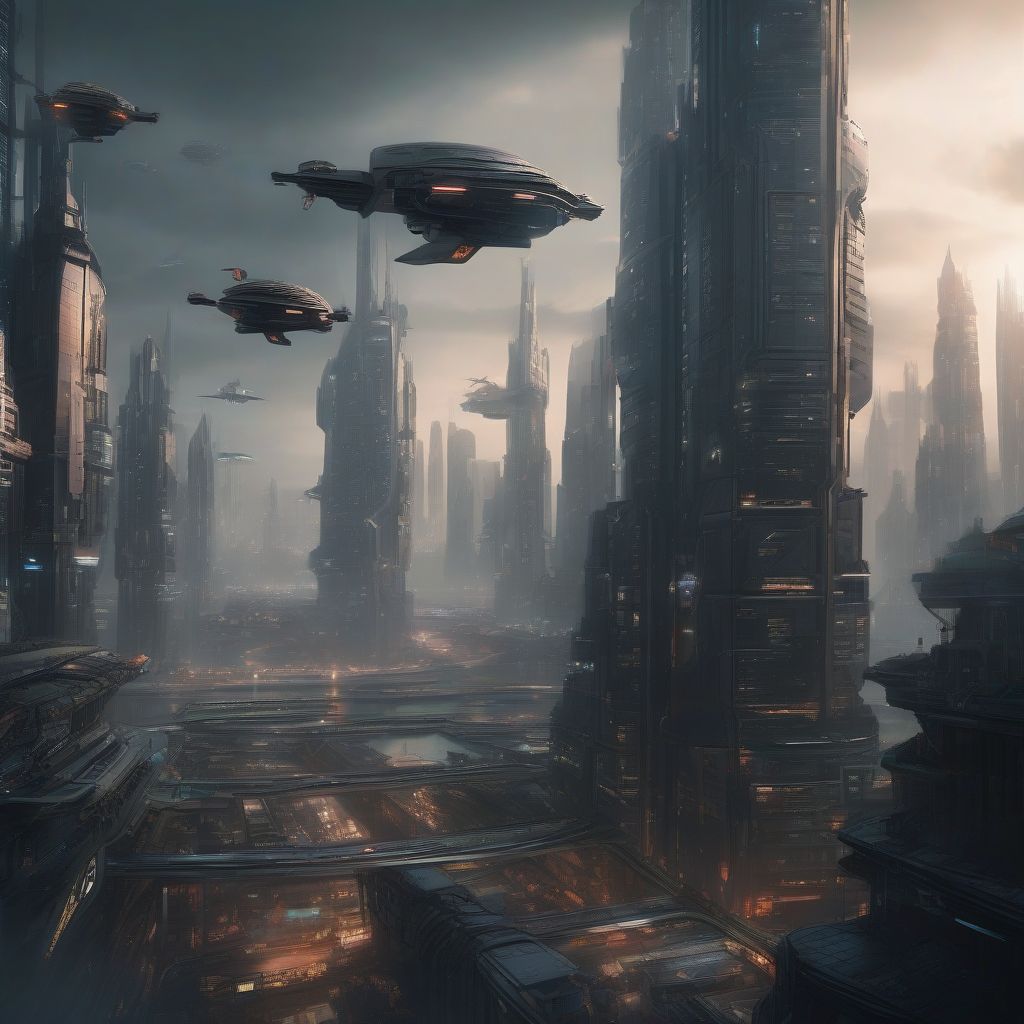Imagine a world where dinosaurs still roam the earth, or humanity has colonized distant galaxies. These “what-ifs” are the lifeblood of science fiction, fueling our imaginations and challenging our perspectives. But how do these speculative elements translate into compelling book reviews?
As an expert in nutrition and meal prepping, I understand the importance of breaking down complex concepts into digestible parts. Similarly, a well-written science fiction book review analyzes how effectively the author utilizes speculative elements to craft a captivating story.
The Role of Speculative Elements: Beyond the Spaceships and Lasers
While spaceships, lasers, and time travel might be the flashy gadgets of science fiction, the true power of the genre lies in its ability to explore profound questions about humanity, technology, and the universe. Speculative elements are not merely window dressing; they are the very foundation upon which thought-provoking narratives are built.
Worldbuilding: Constructing the Extraordinary
A key role of speculative elements lies in worldbuilding. A believable, immersive world, whether it’s a dystopian future on Earth or a vibrant alien planet, hinges on the author’s ability to create a set of rules and then follow them consistently. Readers need to understand the how and why behind the speculative elements to fully invest in the story.
For instance, in Frank Herbert’s Dune, the giant sandworms are not just monstrous creatures; they are intricately linked to the planet’s ecosystem and the production of the valuable spice melange. This intricate connection elevates the sandworms from mere plot devices to integral components of a complex and fascinating world.
Exploring Social and Ethical Dilemmas
Science fiction often utilizes speculative elements to hold a mirror up to our own society, prompting reflection on current issues by projecting them into a fictional setting. By exaggerating existing social structures, technological advancements, or environmental concerns, authors can explore ethical dilemmas and potential consequences in a thought-provoking manner.
Take Margaret Atwood’s The Handmaid’s Tale. The dystopian society, while fictional, raises critical questions about gender roles, reproductive rights, and totalitarian regimes. By grounding the narrative in recognizable anxieties, Atwood compels readers to confront uncomfortable truths about their own world.
 Dystopian Cityscape
Dystopian Cityscape
Pushing the Boundaries of Imagination
One of the most captivating aspects of science fiction is its ability to stretch the limits of our imagination. By introducing elements that defy the laws of physics or explore the potential of advanced technology, authors can challenge our preconceived notions and inspire a sense of wonder.
Consider the concept of faster-than-light travel. While scientifically implausible with our current understanding, the idea opens up a universe of possibilities for storytelling. Authors can explore the vastness of space, encounter diverse alien civilizations, and examine the implications of interstellar travel on human society.
Evaluating Speculation in Book Reviews: A Critical Lens
When reviewing science fiction, it’s crucial to assess how effectively the author utilizes speculative elements to serve the narrative. Here are key aspects to consider:
- Originality: Does the author introduce fresh concepts, or do the speculative elements feel derivative of other works?
- Consistency: Are the rules governing the speculative elements clearly established and consistently applied throughout the story?
- Impact: Do the speculative elements enhance the plot, character development, or thematic exploration? Or do they feel like gimmicks?
- Believability: Even within a fantastical setting, are the speculative elements grounded in a degree of plausibility that allows readers to suspend disbelief?
Conclusion: Embracing the Wonder of “What If”
Science fiction, at its core, is an exploration of possibilities. It invites us to journey beyond the familiar and ponder the “what-ifs” that shape our understanding of the universe and ourselves. As readers and reviewers, it’s essential to embrace the sense of wonder that speculative elements evoke and critically examine how they contribute to a compelling and thought-provoking narrative.
So, the next time you delve into a science fiction novel, take a moment to appreciate the imaginative tapestry woven by the author. Consider how the speculative elements challenge your assumptions, ignite your curiosity, and linger in your mind long after you’ve finished the final page.
What are your favorite examples of speculative elements in science fiction? Share your thoughts in the comments below!
[amazon bestseller=”science fiction books”]
